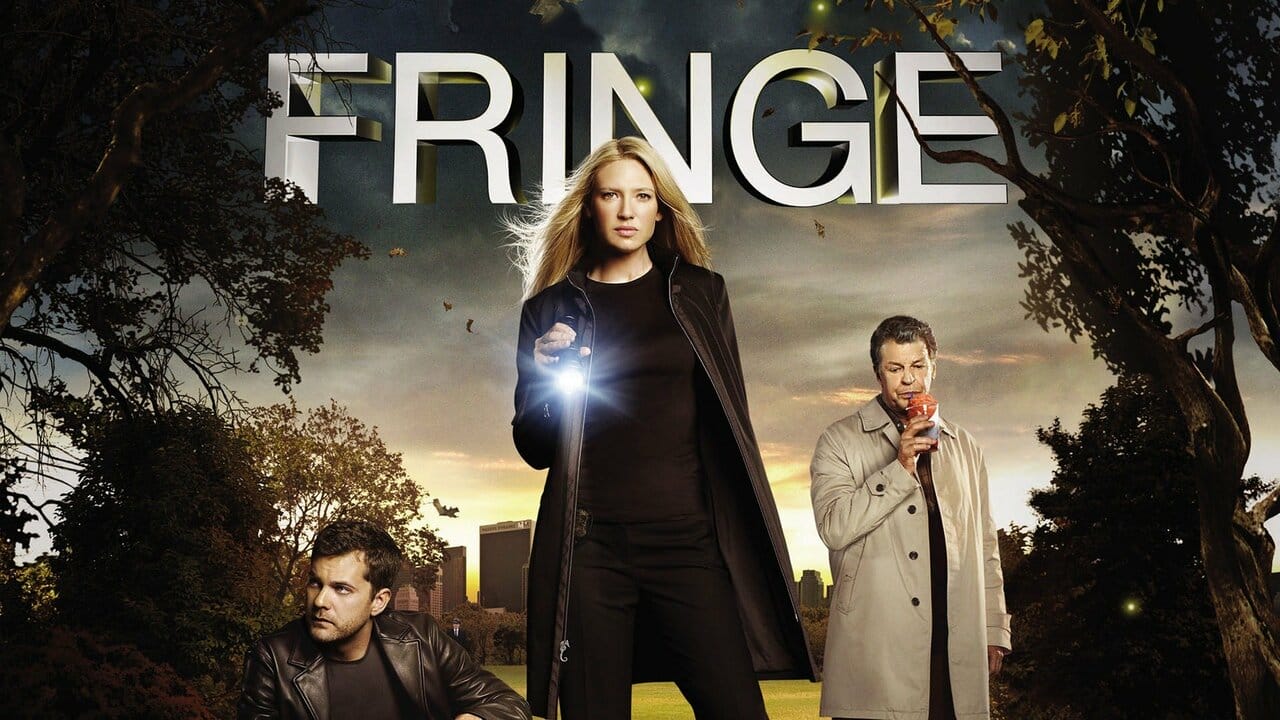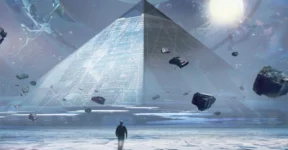One of the key plot elements of the Fringe TV show is the concept of parallel universes side-by-side with ours, which suggests that there is always more than just one version of every single thing in existence. It doesn’t even wait too long or even slowly introduce the idea over multiple episodes; Fringe gets right into it from the get-go.

Hints of the parallel universe are scattered throughout the first season indeed, but the show is not fooling anybody about what plot point it’s trying to achieve. The clear sign is finally confirmed in the penultimate episode of Season 1, “The Road Not Taken” when Olivia sees things from an alternate universe, and then things get really weird.
The scientist on the team, Walter Bishop, theorizes that she experiences some sort of déjà vu, but he believes it’s a glimpse of reality from a parallel world. The only way that she has the experience is if her mind is strong enough to breach the space-time barrier between worlds. Walter later explains about how humans experience time as a linear progression, but seen from the larger scheme of things, every decision and choice a person makes will create an alternate reality. So, in theory, there can be countless parallel universes. A déjà vu is some kind of manifestation of the concept; it gives you a feeling that sometime in the past you’ve been in the same place as you are now (although you can’t remember it) only because you’ve actually been there in another version of the world as we know it.
Fringe is smart to take on the concept because everyone is sort of aware of the scientific plausibility of parallel universes. It doesn’t take much of an explanation, simply because viewers are already familiar with it. Almost the entire show is built on the idea that someone can jump between parallel universes and change the course of reality; here, Walter.
As the story goes, Peter Bishop (Walter’s son) dies at seven. Walter, one of the most brilliant scientists ever, comes to realize that parallel universes do exist and are filled with people very similar to those of the prime universe (our universe). Walter knows Peter is alive and well in one of those alternate worlds, and devises a way to reunite with his son. He effectively goes to kidnap another version of Peter to prevent the child from dying. Walter brings the boy to the prime universe, and in the process creates messy ripple effects that lead to catastrophic consequences today.
Whether you subscribe to the idea of parallel universes, there’s no denying that Fringe’s origin story is both heartwarming and heartbreaking at the same time. Some choices and decisions lead to unpredictable outcomes in just one universe; if you add more universes into the mix, the possibility is limitless. Fringe continues to explore this idea of making difficult choices and how they affect realities in different worlds.
Ground Rules
Being a sci-fi show about parallel universes, Fringe can have all the freedom it wants to create many engaging storylines; imagine Marvel’s Agents of Shield without the occasional help from superheroes. That said, it’s a good thing that Fringe does play by some sensible rules to portray its many versions of the world. For example, in Season 2, Episode 15 “Jacksonville,” you see an entire building from an alternate reality appearing in our world, with predictably terrible results. Walter then explains something about alternate reality physics in which there’s a cosmic balancing force that requires an equal exchange of mass between the different worlds. This makes everyone wonder if the same force applies when people move between universes.
By the second season, Fringe becomes seriously latched on to discussions about parallel universes. If in the first season the show still dabbles in The X-Files style of storytelling, the concept of alternate reality turns Fringe into its own unique entity. It also allows the writers to double their storytelling perspectives and bring more depth because now they have two Walters, two Olivias, and basically two versions of the same main characters.
We think that for every strange phenomenon depicted in the series; the team encounters a new world that brings them closer to the realization of what makes us human. Every single decision we make, no matter how big or inconsequential it might be, becomes part of the building block that shapes our identity as people. The Fringe is essentially asking the same old questions: What if I had not done the thing I did? What if I had made no mistakes at all in my life? If I had taken a different decision, where would I be at the moment? And much like many other stories about parallel universes, the Fringe also doesn’t have all the answers, but it’s dealing with the consequences.
Do you find the idea of parallel universes probable? If there are multiverses, can you hypothetically do a paradox-free time travel? We’d love to hear from you.
Other Things You Might Want to Know
What is the “grandfather paradox” in time travel?
That’s a question best explained with an example. Suppose you are a time-traveler from the future, tasked with preventing the discovery of a certain biochemical weapon. You travel to the past, sabotage the research, and lead the scientists into the invention of a humanoid robot instead. But in the actual timeline, the research was the reason that your grandfather met your grandmother, as they’re both scientists working on the project. If the two of them had never met, your mother wouldn’t have been born, and so you cannot possibly exist to make the time travel to begin with, negating the entire series of events. This is an inconsistent causal loop.
What is the Cortexiphan drug mentioned in the series?
Cortexiphan is an experimental drug designed to improve the test subject’s mental capacity, allowing the person to use the mind to its full potential.
Apart from Dawson’s Creek and Fringe, what other TV series did Joshua Jackson play the lead role?
| TV Series | Year | Role |
| The Affair | 2014–2018 | Cole Lockhart |
| Little Fires Everywhere | 2020 | Bill Richardson |
| Dr. Death | 2021 | Dr. Christopher Duntsch |
| Fatal Attraction | 2023 | Dan Gallagher |
| Doctor Odyssey | TBA | TBA |
Check out other articles by month:







